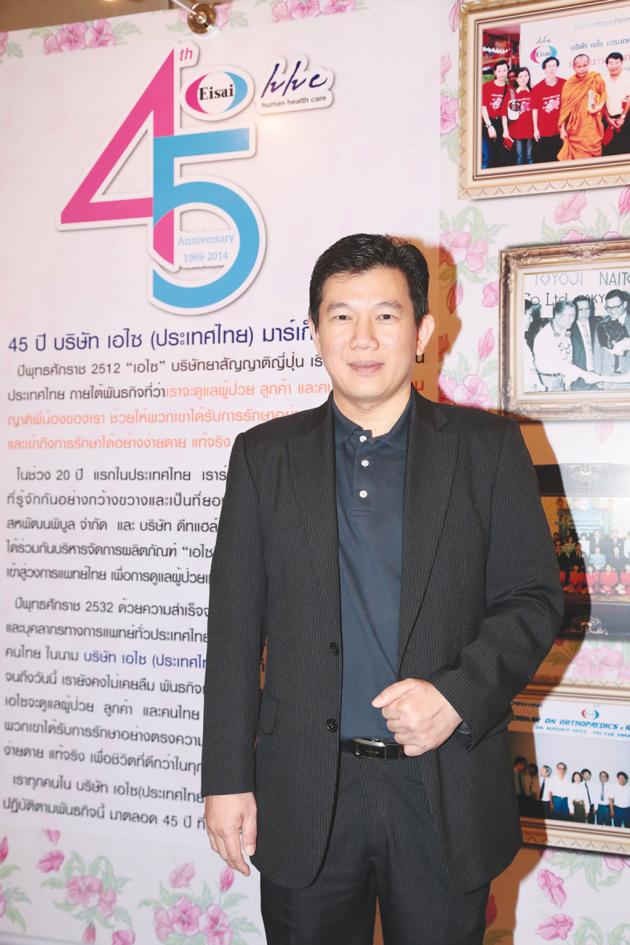Eisai makes Thai unit Indochina hub

Eisai, a Japan-based global pharmaceuticals company, has made Thailand its logistics, sales and marketing hub for Indochina, with separate general managers responsible for the Thai and regional markets.
Nattapan Nimmanpatcharin, general manager for Thailand, Eisai Thailand Marketing, said yesterday that the Thai operation had undergone a major revamp of its organisational structure at the beginning of the year, with two general managers being assigned to take care of the Thai and Indochina markets.
Sompol Wuttikornwipak is the general manager for Indochina.
Nattapan and Sompon succeeded Thaweesak Srithongsurapana, who retired last December.
Eisai expanded its pharmaceutical business first to Vietnam in 1997, and then to Myanmar in 1999.
“The revamp of Thailand’s operation is aimed at cashing in on the significant growth and market potential of Indochina, particularly Myanmar and Vietnam, which has shown strong growth of 30 per cent per annum,” Nattapan said.
He said the Indochina market would contribute about Bt300 million in sales this year, 30 per cent higher than last year.
The Thai operation is expected to generate domestic sales of Bt1.2 billion, up 8 per cent from last year’s level.
This level of expansion will be higher than the overall pharmaceutical market in the Kingdom, which is expected to grow by just 3-4 per cent this year.
“We expect it will take about 10 years for the sales contribution from Indochina to be equivalent to Thailand’s, which is facing more limited government spending on public health activities,” said the general manager.
Thailand will replace Japan in producing and repackaging some pharmaceutical products and shipping them to neighbouring markets in both Indochina and other Asian markets, such as Malaysia, Singapore and Hong Kong, at a lower cost, he explained.
The company next year will focus on distributing its pharmaceutical products via major channels, such as private hospitals, drugstores and medical schools, together with the development of innovative products that allow patients to benefit from better-targeted treatment.
“We also expect tougher competition among pharmaceutical players in Thailand next year, due to a more limited government budget for public health. We are still confident, however, in Eisai’s quality products, such as drugs for the treatment of Alzheimer’s disease and breast cancer, which will drive significant growth for the company,” he said.
Implementation of the Asean Economic Community next year will also intensify competition, he added.
However, if the government were to promote health tourism and attract inbound tourists for value-for-money medical treatment and health check-ups in Thailand, the overall market would be stimulated, Nattapan said.
RELATED





